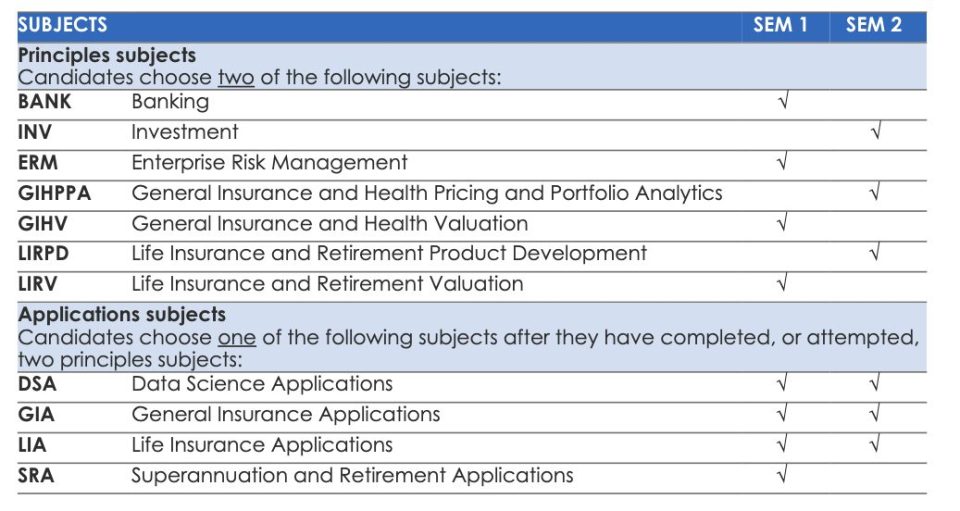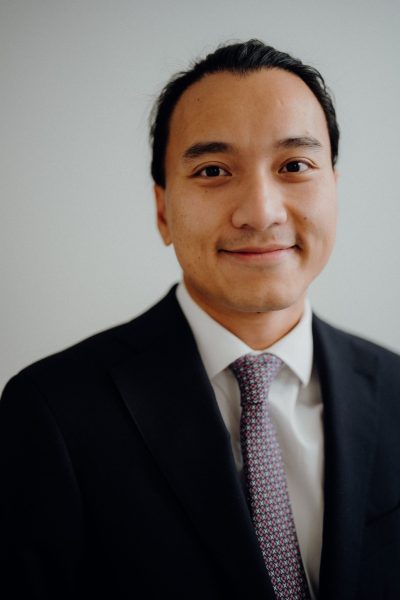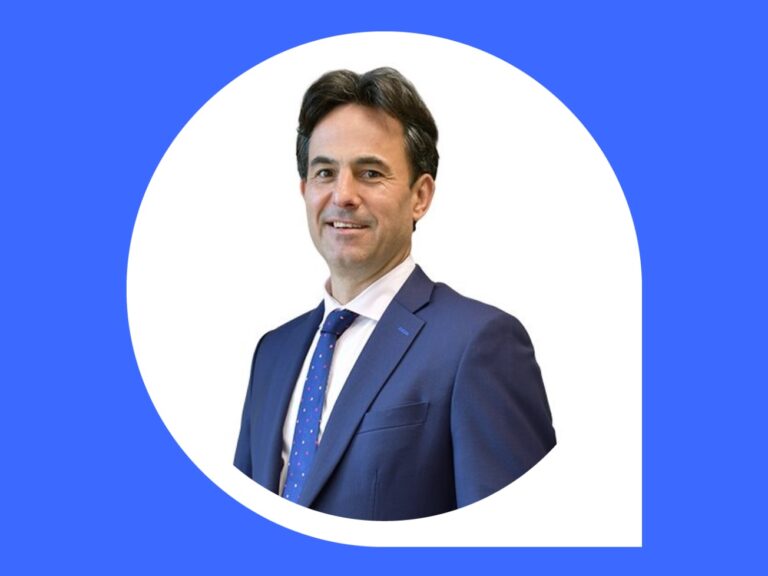
Banking: A New Study Pathway Towards Fellowship
Around 4% of actuaries have nominated ‘banking’ as their primary practice area, and a further 10% have listed banking as a secondary practice area.
We have members working in banks in portfolio management, trading, credit management, risk management, institutional banking, markets, personal banking, treasury, structured finance and banking regulators. To support our members, Council required the redesign of the education program back in 2018 to include a proposal to develop a banking subject.
The Institute is pleased to announce that our banking actuarial community has enabled us to develop a new subject covering an actuarial approach to managing a bank. Members who are studying for Fellowship will be able to enrol on Monday, 18 December. It will be offered as a microcredential in 2025.
The Banking Principles subject will familiarise students with the key components of an Australian banking institution and provide them with an understanding of the operational, strategic, governance, profitability and risk management topics needed for a career in banking.
Following completion of the banking principles subject, students will be able to:
- demonstrate knowledge of banking operations, including key components of a bank balance sheet and the pricing and economics associated with the main banking products;
- describe the key components of the regulatory landscape and corporate governance issues facing banking operations;
- identify and apply techniques to measure the main risks prevalent within a banking operation;
- demonstrate knowledge of the key funding sources for a bank and analyse the pricing and economics associated with different funding sources; and
- describe the key forms of bank capital and demonstrate knowledge of the key principles and methodologies used in bank capital management.
Meet some of the actuaries building the first Banking Education Faculty for the Actuaries Institute
Bill Konstandinidis, who is not a banker, kindly volunteered to set up a Banking Working Group for those interested in all aspects of actuaries in the banking sector. From this pool of actuaries with current or recent banking experience, we have formed the Banking Education Faculty.
During 2023, eleven actuaries with significant banking experience have been involved in writing and reviewing the subject materials, including the syllabus, learning objectives, textbook, examples, and assessments. This team of actuaries have applied their broad experience across retail and investment banking to provide students with a good understanding of the key areas of today’s banking environment.
We are also pleased to announce experienced actuary and educator David Service will be the Chief Examiner, and Moz Ali will be the Independent Examiner.
 Chief Examiner – Dr David Service
Chief Examiner – Dr David Service
David is an actuary, educator and researcher, and is well-known to many actuaries that have passed through the Institute.
He has been an actuarial lecturer at the Australian National University (ANU) and has industry experience at Swiss Re, Trowbridge Consulting and Commonwealth Bank.
With David’s interest in corporate and consumer behaviour within the financial services sector, David is keen to help students learn the importance of corporate governance and the types of risks faced by Australian banks. ‘The Royal Commission into Misconduct in the Banking, Superannuation and Financial Industry highlights the delicate balance of profitability, stakeholder management and corporate responsibility. This introductory Banking subject will set the scene for actuaries with an interest in the broad spectrum of financial services institutions,” says David.
 Independent Examiner – Mozammel Ali
Independent Examiner – Mozammel Ali
Moz began his career in banking following his personal interest in financial derivatives. As a graduate, he worked within a corporate derivatives consulting team at Deloitte before joining Tillinghast actuarial consultants, where he was involved in large-scale mergers and acquisitions (M&A) and demutualisation transactions across their Sydney, Cape Town and London offices. He then joined Citi in London, working within the Financial Institutions Investment Banking team covering insurance M&A and capital structuring. After several years in London, Moz returned to Sydney and joined Deutsche Bank’s Financial Institutions Investment Banking team, expanding his responsibilities to banks and other financial institutions before focusing on capital structuring across various industry sectors. Throughout his investment banking career, Moz has been involved in some of the most high-profile M&A, equity, debt and hybrid capital raisings in the region.
Moz says about his extensive banking experience: ‘Each career move has given me the opportunity to build on my skills – for example, utilising actuarial skills and techniques from my role at Tillinghast towards developing insurance company valuations and capital analysis at Citi. Moving to Deutsche Bank, my insurance valuation skills provided a platform to broaden my role to banks and other financial institutions.’
Moz advises young actuaries looking to embark on a career in banking to consider how their existing skills can be deployed within a bank and to also consider how a banking role may further develop those existing skills, enhancing proficiency and expertise with career progression.
Banking Education Faculty – Anthony Nguyen
Anthony started his career in general insurance consulting then moved into a broader financial services role, building on his interest in financial services strategy working across banking products, operations and even marketing. Realising that he needed to build his quantitative modelling skills, he returned to complete his actuarial studies (with persistent effort) and is now working at ING managing the strategy and performance of the retail portfolio which includes mortgages, savings, transactions, and consumer finance.
Anthony’s role considers product financial viability with the needs of consumers of those products. This is a complex balancing act given the vast number of products within the portfolio; however, Anthony believes the objectivity and impartiality of being an actuary has helped him succeed in this role.
Anthony says, ‘While more traditional actuarial roles in banking, such as in treasury or risk management, are reasonably quantitative, my current role relies on me understanding trends, customer behaviours, and the external environment to forecast without bias. This objective analysis is an actuarial skill that has seen me excel in my current role and has helped me form holistic strategic views of the portfolio.’
Anthony is looking forward to sharing his experience as a banker and providing students with an understanding of how many products banking fit together and the factors that drive the profitability of those products.
 Banking Education Faculty – Dr George Nassios
Banking Education Faculty – Dr George Nassios
George has a diverse background in capital markets, treasury, and investment strategy. He is currently Treasurer at a non-bank financier, an advisory board member at RMIT and Deakin University Business Faculty and an advisory board member at RiskLab Australia, a research initiative by CSIRO’s Data61. He has been Chief Product Officer (Capital Markets) with experience in private debt, venture capital, and private equity and was a Director of Investment Strategy & Advice at Deutsche Bank. George has significant private banking and high net worth investment experience and has worked in market risk at NAB, heading the Policy, Analysis, and Quantitative Support division and leads the Debt-Equity Hybrids Origination team. George started his career as an actuary at National Mutual, handling defined benefit superannuation funds and life insurance analysis, which laid the groundwork for his substantial journey in the finance industry.
George’s transition to banking occurred after he studied the Investments subject and wanted to further his interest in bond markets, convertibles, and hybrid capital structuring.
George says, ‘The banking industry is constantly changing – new assets, evolving external markets and changes to regulation and societies expectations. I am looking forward to sharing my experience in banking through the peaks and the troughs to give today’s banking students a taste of how to manage this complex industry.’
Potential pathways through the Fellowship Program are shown in the following table.

Please contact Clare Marshall at the Institute if you are interested in volunteering with the Banking Practice Working Group to provide professional development for actuaries working in banking. Additionally, you can contact the Education Team with any queries about your course of study. Visit our website to find out more about the enrolment period which will be opening in December.
CPD: Actuaries Institute Members can claim two CPD points for every hour of reading articles on Actuaries Digital.







